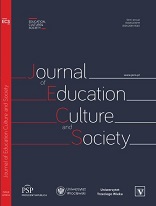Integrism towards the contemporary religious education and teaching of the Second Vatican Council
Integrism towards the contemporary religious education and teaching of the Second Vatican Council
Author(s): Dominik FigielSubject(s): History of Church(es)
Published by: Fundacja Pro Scientia Publica
Keywords: religious education; Second Vatican Council; integrism; intercultural education; ecumenism; modernism; religious freedom; dialogue; Fraternity of Saint Pius X; pluralism
Summary/Abstract: Intercultural education as a result of social changes has allowed expansion of dialogue boundaries. As a result, a new approach to religious education has been formed. First of all, it was the emergence of streams and processes affecting the perception, meaning and place of Christian religion in the contemporary world. This was connected with the Second Vatican Council and the effects of the decisions concerning religion. The new slogans propagated by a modernist environment such as religious freedom or ecumenism, led to the opposition in traditionalist circles. The most radical attitude was presented by The Saint Pius X Fraternity and its founder Marcel Lefebvre. All views, attitudes and actions directed towards the objection to modernist changes are called integrism, and its representatives are integrists.
Journal: The Journal of Education, Culture, and Society
- Issue Year: 4/2013
- Issue No: 2
- Page Range: 16-28
- Page Count: 13
- Language: English

